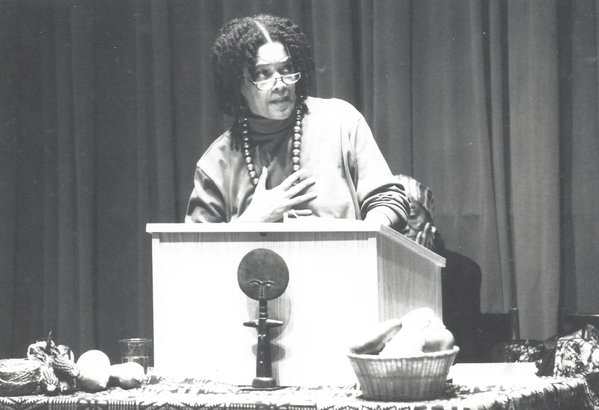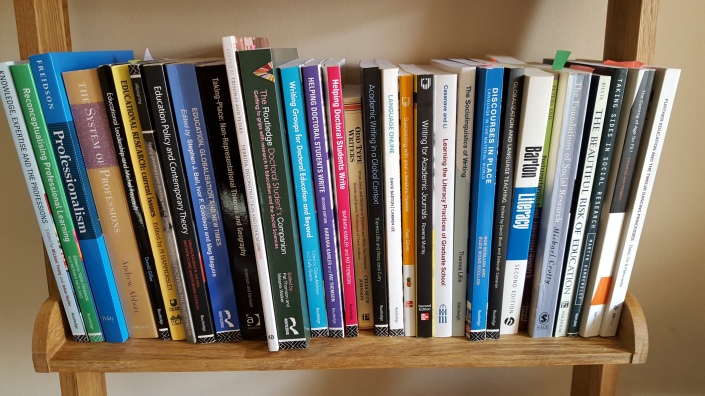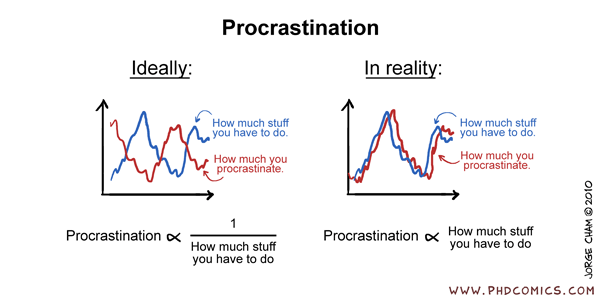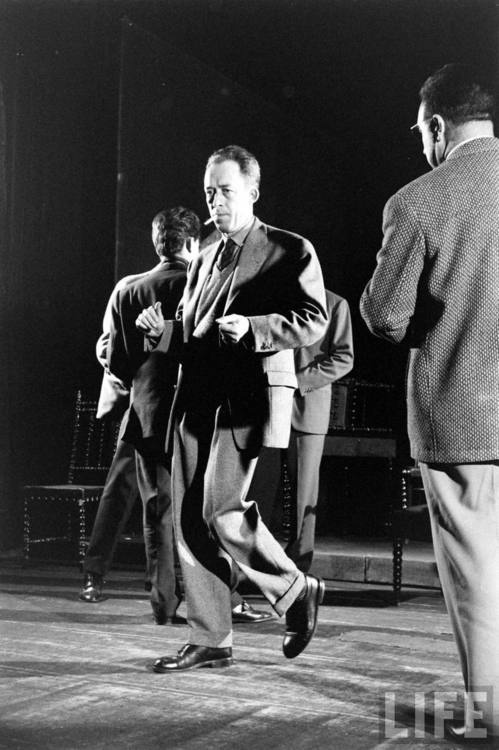Uncategorized
Positionality Pit Stop … aka ‘Keeping it Real’


Blog Post by Raona Williams @REFITClass, an #EdDBlogger
The excerpt found in the picture above is taken from Stein’s (1998) interpretation of words from the late Professor Stuart Hall into the concept of a topic that is close to my heart. I could write an enlightening post on this but the best place for this is on my reflective blog
This blog post instead is marking the notable focus of ‘looking inward’ to relate positionality in my doctoral journey. After this weekend of being inspired by students and professionals sharing poignant information I now will begin working on identifying my own ‘academic positionality’ within my work.
I remember coming across the word ‘positionality’ amongst a range of other ‘new words’ when I first began my doctorate journey.
I dismissed the word as just being a long unnecessary group of letters to extend the word ‘position’ and continued my focus of loving to write about topical interests that enlightened me from academic reading.
Over the course of the last year or so, I have continued to read this ‘P’ word in journal articles. I have continued to hear the word being spoken out of mouths of academic mentors, lecturers, and a new collegiate I am loving gaining a closer allegiance with.
Up until today I still thought ‘POSITIONALITY’ was just a ‘pretty’ word to provide an explanation of why you think the way you think. Or why you do what you do’. I guess in a way it really is that. BUT… it is more.
Positionality in my eyes is linked to place – think of this – can you describe the position of something without relating to its location?
Positionality in research is linked to a mental location not just an explanatory or physical place.
It relates to WHERE and HOW the researcher feels they are placing or shaping their input into the research.
This is fundamental to the research question(s) they are seeking to answer.
Put it simply: If you are choosing a holiday destination – what shapes/makes/places you into the position to want to take the holiday in the first place?
This weekend concept of positionality has become a clear and important component to research and understanding yourself really and where you are in ‘society’.
I honestly thought I could actually complete my doctoral research staying quite neutral and as a ‘fly on the wall’ looking in. Now I cannot dream of doing this – I need to fly to my location, state my place and ‘keep it real’ 🙂
Since completing a small pilot study linked to my doctoral research (empirical research as it is also called) and after this weekend, I have recognized the importance of stating your influence as a doctoral researcher to show how it affects your work – it is also termed, your ‘researcher bias’. Floyd and Artur (2012) relates the concept of positionality to the resultant impact being an ‘inside or outside researcher.
Not stating the inside/outsider researcher aspect to your work affects the validity to your critical argument. I believe it leads the reader into a false truth.
Similarly, not revealing your positionality can be even worse – this is because if the reader does not know where you are coming from – how on earth can they work out what you are trying to say and where you are going with your argument and point?
So I have reached a significant pit stop in my doctorate journey. In fact, I will go further. I am driving to a showroom and changing my vehicle all together! I feel like I’ve been in my sports car for a while now – loving the cruise and flossing in my ride into the doctoral sunset..but now I’m going to drive with an upgraded and different model, altered spec, greater purpose and to some areas where the new terrain may get rough!
I’m now embarking on revealing with a self made route-planner which sections of my life experiences, knowledge base and exposure to society have led me to ‘the positionality bias of my epistemology’ -TRANSLATION?….
I will now work on making the path clear in showing how my ‘world’ has shaped what/how/why I want to answer my research questions(s)
I am now excited about DISCOVERING MY POSITIONALITY: fine-tuning my research, reviewing my reflective diaries, unpicking my research passions and interpreting/uncovering my life and world influences in purposeful relation to my doctoral research.
References
Alan Floyd and Linet Arthur (2012) Researching from within: external and internal ethical engagement
The EdD Experience: love letter to a potato

by https://twitter.com/s1mb0bw1tham
In this post Simon, The Headteacher writes a love letter to the EdD
Dear EdD
Never have I felt so confused, unsure and unstable in my working and professional life! I thought I had everything completely in hand and then I met you!!! Your flyer sat on my desk for weeks burying itself deeper into the recesses of my subconscious until I had to look at you. You are something I had never considered or thought I needed in my life…Now I cannot get you out of it!
I think about you and research 24/7. You have opened my eyes to the power of the written word.
I read.
I digest.
I define.
I define and redefine.
I modestly try to speak your language privately hoping that it makes sense and then, with confidence in public.
I have never read so much.
I have never read so much and felt so confused.
I have never read so much felt confused and wanted to understand anything more than you EdD.
You make me question every written, spoken and read word.
That is something to behold. You have taught me about conceptual frameworks, methodology and methods.
Positionality in Weekend 1 the mere word created panic.
Now it is a security blanket.
Paradigm = 2 months of utter dread.
Now I revel in the thought of developing my understanding of critical theory.
Seamus Heaney wrote
‘Between my finger and my thumb
The squat pen rests.
I’ll dig with it.’
EdD You are the potato patch and I have begun to dig.
Simon
References
The EdD experience: minding my Qs & Ps

Blogged by Raona Williams @REFITClass
I am returning from a fabulous few days of being stimulated and stimulating a great network of doctoral researchers, supervisors and lecturers. Being firmly established now onto my Doctorate journey, I have prepared a manifesto of seven ‘magical number’ points around the topic ‘Why and how to persevere through the journey of being an Educational Doctorate (EdD) researcher?’ …who says manifesto’s should only be linked to Politicians?
Not P’s and Q’s ….Q’s and P’s
In being a doctoral EdD researcher, many researchers and different ideas/views will set your minds wandering…this is an important opening manifesto point.
NO, not being polite and minding your ‘Please and Thank-you’s’.
Q’s and P’s refer to QUESTIONS in your research that must be underpinned by 3 over arching POSITIONS: PERSONALITY, PROFESSIONALISM, PRACTICALITY.
As an EdD researcher, a vital component of what you choose to research is that ‘You must love what you do in life’. Concurrently, being professional within the critique of your personal passion is equally important. Reflecting the professional views of your personal positions should then enable you to discover practical and current relevance pertaining to your work.
So as a doctoral researcher gain an understanding of your personal focus, provide your theoretic underpinning/positionality and the practical value that you will be adding to the society around you.. as you develop your thoughts and ideas and mind your Q’s and P’s in every step – this should keep you grounded.
- Enjoy Complex Simplicity
Questioning and critiquing almost everything you do when you begin doctoral research is liberating and pretty simple really….enjoy it. Find the light hearted elements in the heavily worded documents….there are definitely ‘no sh*$ Sherlock’ moments through what you read and discover, celebrate them and find how to laugh through the complex simplicity.
- Uncover your obvious
You will most likely be facilitated on your doctoral programme through tasks and questions that are posed to you by different individuals. As you answer them, put yourself in the world of an alien from another dimension. What may seem obvious to you may be totally unknown to those around you. The aim of your doctoral research is to contribute NEW theoretical knowledge so unless they are telopathic they will never be able to read your mind of the new knowledge you plan to uncover. The more you reveal and unfold the easier you will gain clarity yourself through the questions that may be answered along the way.
- Everything is research so…Contextually critique
There is critique; then there is contextual critique. As a doctoral researcher you will evaluate at a higher level. You will find that you will be enlightened when reviewing books, journal articles, any selection of words, people, colours, history, shapes, places, smells, sounds, influencers, naysayers, technologies, economies, politics…pretty much ANY element related to your research. Depending on what your context is (the ‘circumstances and reasons’ behind your research) will determine your critical view and how you will review it. Consider the less obvious in your critical evaluation, this will add to you being able to contextually critique.
Find positivity amidst your muddy walk. Pace yourself with tenacity and collaboration
You will hit some severe ‘tough mudder’ days that would give any elite athlete or special forces soldier a mental challenge. Some days you will feel like it’s an impossible slug amidst a range of obstacles. As an EdD researcher you will have your mental potential tested. Keep your physical health up through exercise and keep your mental health in check by developing personal strategies for positivity and tenacity. Work with others going through similar paths – a colleague in your doctoral group, link with a group forum online, network through conferences.
I believe that the fusion of physical fitness goes hand in hand with mental fitness. I am proud of the comments that colleagues have given me regarding my own positive outlook and never seeming to give up. My immediate response is a smiling and assuring gesture of thanks. I do it as a strategy to convey ‘If I can do it..so can you!’ Everyone welcomes a smiling face and negative thoughts are a state of mind! So I advocate: Dedicate acts that are positive to you as you structure your EdD time management timetable networking with others where possible ….and keep mentally and physically fit, you will definitely find it helps.
- Act on the impulse-make a memory record of it
Don’t put off anything by saying or thinking: I will do it later. Start it there and then! Allow your research to become innate in your life and noting a working memory of it becoming automatic. Document on paper, by smartphone, by digital device, by computer, by dictaphone….by any means possible.. Even if it’s for a few seconds! You will find that in one way or another your ‘record’ will help in your doctoral research road. No matter how hard you try to fully complete your record you will never ‘finish’ – and that is OK because in reality there will always be amendments to make! You will constantly evolve through the process of your ‘acting on impulse’ and the fact of providing a memory of it will enable the next stage to be developed one step closer to your idea of perfection.
- 7 R.E.S.T – Relax, Enjoy, Share/Shape (the)Topical
I started my manifesto with minding your Q’s and P’s. I moved onto transparency with critical, positive action and paced discoveries and I end this manifesto with REST. Your doctorate research road is your new life chapter. Relax and let it become your life not take over your life. Enjoy your discoveries like a tourist encountering new landscapes. Enjoy the development of skills for how they help you and others around you to grow and shape aspects of life. Share your doctoral research world with others through talking, illustrating, drawing, making, writing, tweeting, blogging, videos any verbal or non verbal communication media you feel comfortable with. Topical interests will emerge and keep you motivated to discover more ….So REST will invigorate you and keep you on the Educational Doctorate research cycle – which from what I hear…is just the beginning of a wider professional post doctoral expedition.
“The purpose of a writer is to make revolution irresistible.” Toni Cade Bambara

Just a few of my favourite books about writing. Not a comprehensive literature – only what I could find on my bookshelves and fit it a photo. More than a few are missing.
Thomson, P., & Walker, M. (Eds.). (2010). The Routledge Doctoral Student’s Companion: Getting to grips with research in education and the social sciences. Routledge.
Aitchison, C., & Guerin, C. (2014). Writing groups for doctoral education and beyond: Innovations in practice and theory. Routledge.
Kamler, B., & Thomson, P. (2014). Helping doctoral students write: Pedagogies for supervision. Routledge.
Johnson, Celia Blue (2013) Odd Type Writers, from Joyce to Wharton and Welty, the obsessive habits and quirky techniques of great authors, Perigee Books
Lillis, T. M., & Curry, M. J. (2010). Academic writing in global context. London: Routledge.
Barton, D., & Lee, C. (2013). Language online: investigating digital texts and practices. Routledge.
Oliver, P. (2012). Succeeding with your literature review: A handbook for students. McGraw-Hill Education (UK).
Murray, R. (2013). Writing for academic journals. McGraw-Hill Education (UK).
Casanave, C. P., Li, X., Casanave, P., & Underst, X. L. (2008). Learning the literacy practices of graduate school: Insiders’ reflections on academic enculturation.
Lillis, T. (2013). The sociolinguistics of writing. Edinburgh University Press.
Scollon, R., & Scollon, S. W. (2003). Discourses in place: Language in the material world. Routledge.
Block, D., & Cameron, D. (Eds.). (2002). Globalization and language teaching. Routledge.
Barton, D. (2007). Literacy: An introduction to the ecology of written language (No. 2nd). Wiley-Blackwell.
I couldn’t fit
Gee, J. (2015). Social linguistics and literacies: Ideology in discourses. Routledge.
on the shelf without too much rearranging. But a beautiful, lovely book about a little girl and a sentence, ‘My puppy he always be following me.’

Thanks to https://twitter.com/VintageAnchor for the quote and image of Toni Cade Bambara.
Procrastinators rejoice!
According to @BBCRadio4, if we procrastinate before starting a task, we’re 16% more likely to be creative. Academics everywhere rejoice.
— Dr Joanne Paul (@Joanne_Paul_) March 7, 2016

Ten Standard Objections to the Qualitative Research Interview
Quote Posted on

Kvale, S. (1994). Ten standard objections to qualitative research interviews. Journal of phenomenological psychology, 25(2), 147-173
I seem to be in a nostalgic mood. Which means I am thinking about vinyl records and research papers published years ago.
I was struck by two comments recently. One: a colleague pointed out that an interview might be anything from a questionnaire spoken face to face with answers recorded in on a pre-coded template to an individual standing in a room. Two: another colleague responded to the guffaws at the idea of the educational researcher standing in a room and calling it an interview by pointing out the etymology of inter (between) view (see) – “to see each other”.
The interview may well be the most popular data generation technique for the qualitative educational researcher, but it is not necessarily well defined. It can map onto any and all other approaches to research. After all, what data generating activity does not involve a researcher standing in a room?
It’s worth then being reminded of Kvale’s discussion of the 10 standard objections to qualitative research interviews.
- is not scientific, but only common sense
- is not objective, but subjective
- is not trustworthy, but biased
- is not reliable, but rests upon leading questions
- is not intersubjective; different interpreters find different meanings
- is not a formalized method; it is too person-dependent
- is not scientific hypothesis-testing; it is only explorative
- is not quantitative, only qualitative
- is not yielding generalizable results; there are too few subjects
- is not valid, but rests on subjective impressions.
Koala’s text is dated. Hence my feelings of nostalgia. Even though he was writing more than 20 years ago … imagine that, before the election of Tony Blair in the bad old days of John Major’s non-government, he describes the debate then as polarised and based on stereotyped objections.
He also points out – all those years ago – that these “standardized responses can be traced to a positivist philosophy of science, which, while philosophically obsolete, still survives in many social-science departments.”
Kvale was not the first to declare positivism philosophically obsolete. And his paper is not a pre-emptive celebration of its demise of (his 10 objections might sound this way) but actually a refutation of these hackneyed points of critique – each of which still resonate. It’s a worthwhile paper, not only because there’s nothing wrong with nostalgia but also because – well, you might not have been there at the time so perhaps what’s old hat to someone, might be a new exciting penny dropping thing to someone else. What was an all out declared war in the 80s has softened into a dialogue at the turn of the century, but Denzin, the High Priest of qualitative research has recently (2008) issued a call to arms:
Let us engage in the paradigm wars. Let us defend ourselves against those who would impose their modern notions of science on us by exposing the flaws in what they call scientifically-based research. Let us mount a strong offence by generating qualitative studies that are so powerful they cannot be dismissed (Hatch, 2006, p. 407).
References
Denzin, N. K. (2008). The new paradigm dialogs and qualitative inquiry. International Journal of Qualitative Studies in Education, 21(4), 315-325.
Hatch, Amos. 2006. “Qualitative Studies in the Era of Scientifically-based Research: Musings of a Former QSE Editor.” International Journal of Qualitative Studies in Education, 19, 4 (July-August): 403-409.
Zora Neale Hurston
Research is formalized curiosity. It is poking and prodding with a purpose.
ZORA NEALE HURSTON#amwriting #writing pic.twitter.com/R3gGQmkIeH— Jon Winokur (@AdviceToWriters) February 22, 2016
The 12 EdD Days of Christmas
I like poetry but have a deep mistrust of academic poetry. None-the-less, Mary Cryan made me LOL with this blog post. Is someone celebrating after having met a deadline? Sing it to a familiar tune.

@marycryan
Posted on December 31, 2015 by marycryan2013
https://marycryan2013.wordpress.com/2015/12/31/the-12-edd-days-of-christmas/
On the first day of Christmas the EdD team recommended to me
- Endnote on a PC.
On the second day of Christmas the EdD team recommended to me
- Two online blogs and Endnote on a PC.
On the third day of Christmas the EdD team recommended to me
- PensThree new pens, two online blogs and Endnote on a PC.
On the fourth day of Christmas the EdD team recommended to me
- Four library books, BooksThree new pens , two online blogs and Endnote on a PC.
On the fifth day of Christmas the EdD team recommended to me
- Five paradigms, Four library books, Three new pens , two online blogs and Endnote on a PC.
On the sixth day of Christmas the EdD team recommended to me
- Six points to work on, Five paradigms, Four library books, Three new pens, two online blogs and Endnote on a PC.
On the seventh day of Christmas the EdD team recommended to me
- Seven keynote speakers, six points to work on, Five paradigms, Four library books, Three new pens , two online blogs and Endnote on a PC.
On the eighth day of Christmas the EdD team recommended to me
- Eight methods of research,Seven keynote speakers, six points to work on, Five paradigms, Four library books, Three new pens , two online blogs and Endnote on a PC.
On the ninth day of Christmas the EdD team recommended to me
- Nine new journals,
- Eight methods of research,Seven keynote speakers, six points to work on, Five paradigms, Four library books, Three new pens , two online blogs and Endnote on a PC.
On the tenth day of Christmas the EdD team recommended to me
- Ten websites to bookmark,Nine new journals,Eight methods of research,Seven keynote speakers, six points to work on, Five paradigms, Four library books, Three new pens , two online blogs and Endnote on a PC.
On the eleventh day of Christmas the EdD team recommended to me
- Eleven minutes procrastinating,clockTen websites to bookmark,Nine new journals,Eight methods of research,Seven keynote speakers, six points to work on, Five paradigms, Four library books, Three new pens , two online blogs and Endnote on a PC.
On the Twelfth day of Christmas the EdD team recommended to me
- Twelve tweeters tweeting, Eleven minutes procrastinating, Ten websites to bookmark, Nine new journals, Eight methods of research, Seven keynote speakers, six points to work on, Five paradigms, Four library books, Three new pens , two online blogs and Endnote on a PC.
Happy New Year!
The postmodern researcher as a naked deep-sea diver
#HullEdD image of the weekend: naked, free diving postmodernist researcher. Apologies @azumahcarol pic.twitter.com/3sqN1tOjzS
— Jacqueline Bartram (@jaxbartram) November 21, 2015
The talented @jaxbartram has been at it again! This one made me smile even more than most.
And I have just spent an evening trying to locate a reference that seems determined to slip through my fingers. But, I couldn’t let this tweet (and image) pass by without comment.
It is possible to undertake research with an open enquiring and creative mind unencumbered by the methodological paraphernalia that can tie you down. Your purpose – as a researcher – is to explore every possibility, to follow what seems interesting and intriguing, and to work out what’s going on. This task is made easier when you are free, light footed and able to follow which ever line of flight seems to point in the right direction. The ‘paradigm’ weighs you down with a list ‘do this and don’t do that’. To do good research, we don’t need method or paradigms.
‘If the purpose of educational research is to understand education, we don’t really need methods, all we need is good social theory, good intentions and deep hanging out.’
Madison p49
The invitation then is to imagine yourself a deep-sea diver. A naked deep-sea diver. One who gets down there and gets on with it. Deep hanging out and it doesn’t get much deeper than the coral reef.
I’d really like to find out whose metaphor this is but a comprehensive google search, followed up with a trawl through sage research methods online, accompanied by a physical search of the books on my shelves and I have found – nothing.
Maybe I mis-remembered it, dreamt it or made it up!
